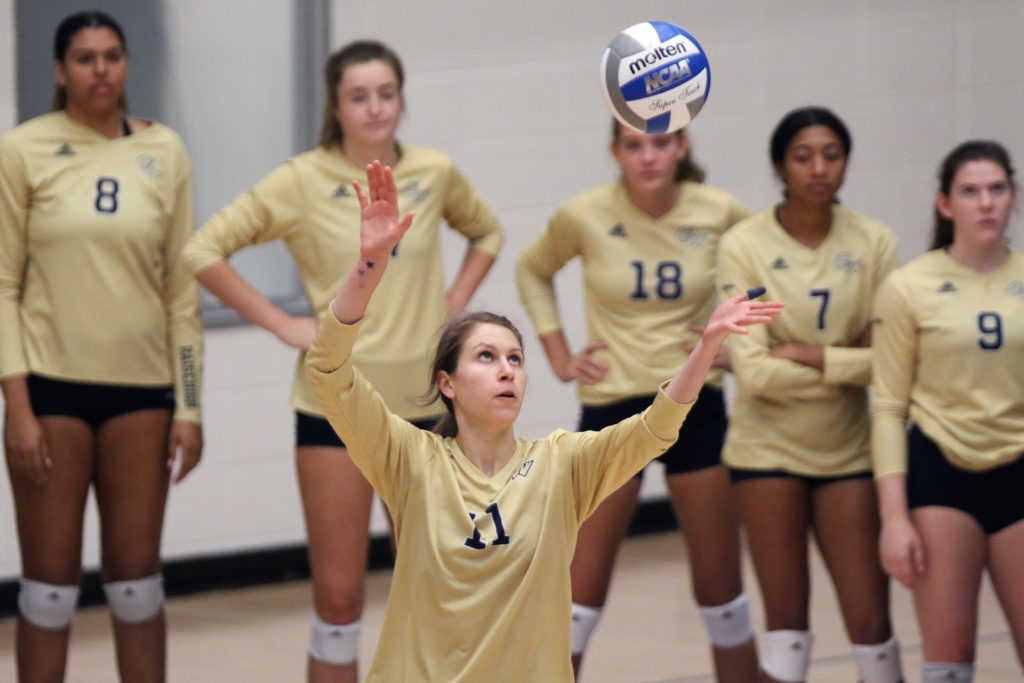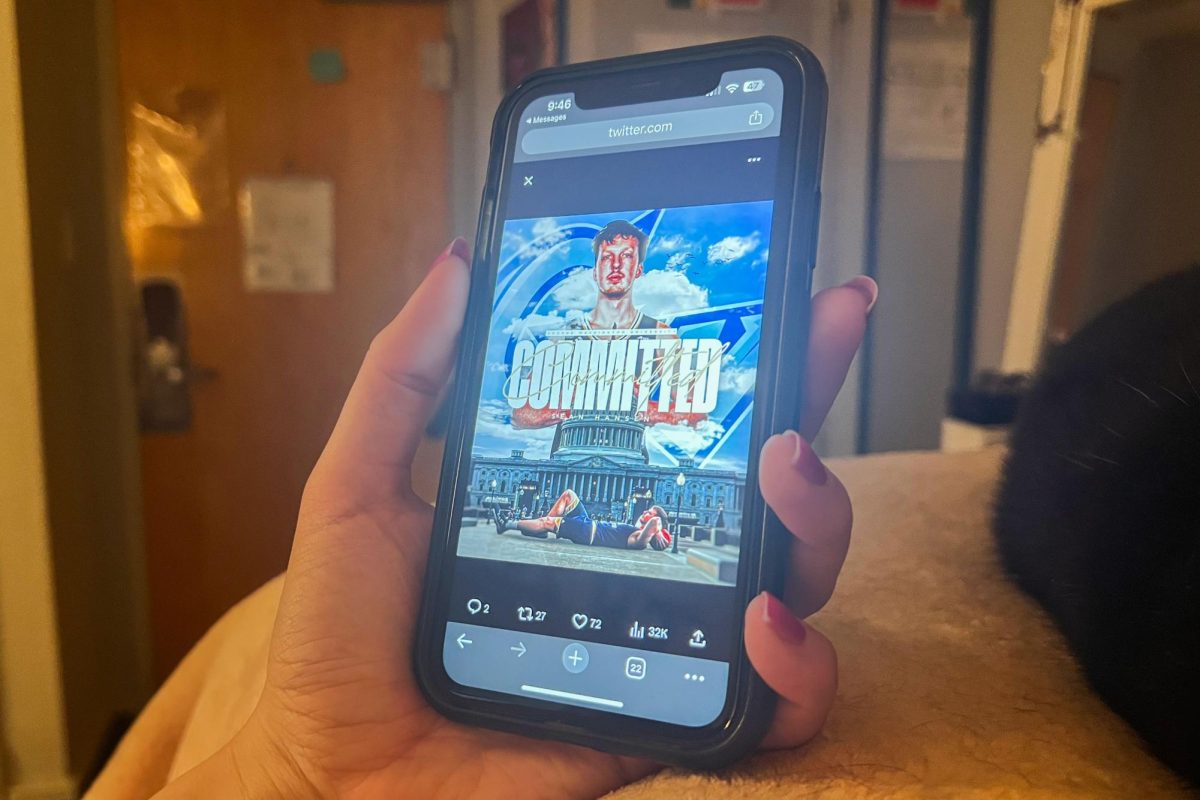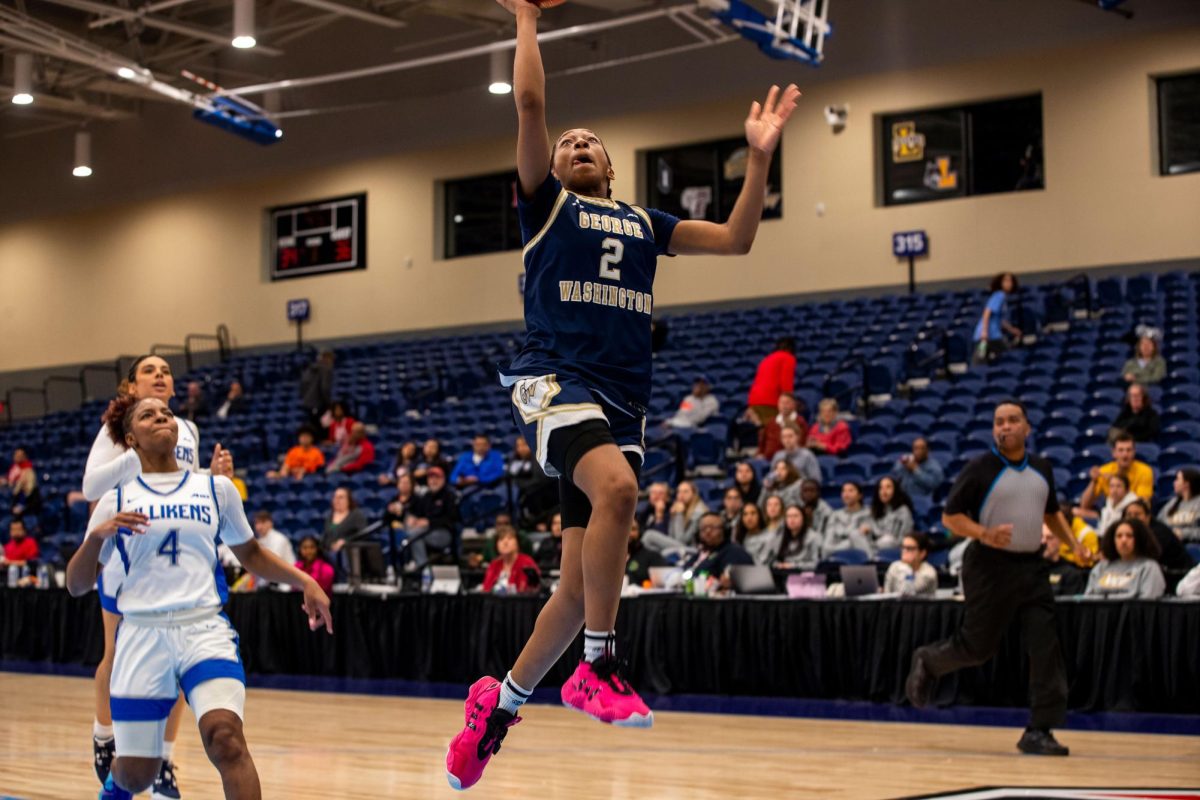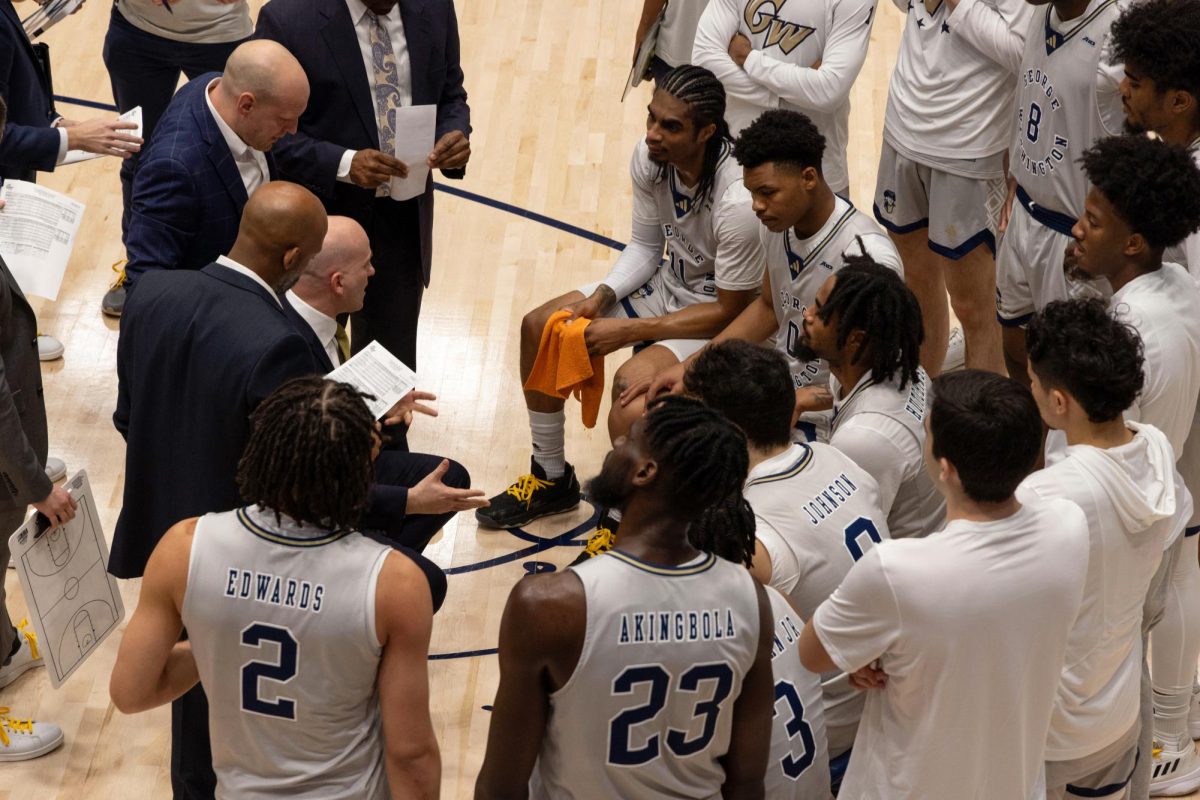More graduate students were rostered this year than over the last five years combined.
The 2019-20 school year features 13 graduate students across both men’s and women’s sports, up from two graduate student-athletes the previous season. Graduate student-athletes said their playing experience prior to coming to GW has helped them tackle competitors, but they still have room to learn and mesh with a largely undergraduate team.
Men’s soccer leads the way with four graduate students on this year’s roster, followed by two on women’s basketball and volleyball and one across five other teams. From the 2014 academic year through 2017, no student-athletes were graduate students.
Men’s soccer head coach Craig Jones said graduate students like midfielder Matt Sipowicz and midfielder and defender Sandro Weber have provided leadership and a “little bit of calmness” for the team’s younger members who are adjusting to college.
“When we’re on the field, practice-wise they lead by example, so it’s been very good for us,” Jones said.
While Jones said graduate students are recruited in a similar way to undergraduates, adding graduate students with eligibility for more than one year is difficult because of the nature of their academic programs. He said he seeks out graduate students who are slated to stay for more than one year so they can familiarize themselves with the team.
“We’ve just picked up a couple of guys, it’s tough to have them for one year,” Jones said. “[Sipowicz] was a little bit different, but I think with Sandro, having him for two years, that helps. One year is one and done, I’m not really a huge fan of that.”
Weber, the midfielder and defender, said compared with the German league he played with back home, the speed and quality of play in collegiate soccer at GW are relatively higher. Although he brings undergraduate experience with him, Weber said he looks to his teammates to help him adjust to the more physical nature of the game in America.
“I look to the other players, how they play in their position and technically, physically,” Weber said. “It’s a physical game here. You need to be very physical here in the United States, so I need to improve that.”
Midfielder Haukur Hilmarsson said he played with “full-grown men” back home because his home in Iceland did not have a collegiate team. Hilmarsson, who is entering his second campaign with the team after scoring 16 goals last season, said he adjusted and grew from facing relatively older competition and brings that experience to his younger teammates.
After a rocky 2018 season in which the squad finished with a record of 5–9–3, men’s soccer added eight new players this offseason, including Sipowicz and Weber.
On the volleyball court, two graduate students – opposite hitter Paty Valle and middle blocker Caroline Sklaver – have given the team stability moving into the new season. The team fell short of the A-10 Tournament last year and finished the season with an 11–15 record.
Valle, who ranks No. 2 on the team with 69 kills this season, said that while her and Sklaver “didn’t ask for the leadership position,” they’ve embraced their role and try to lead by example. Valle said her time playing volleyball as an undergraduate at Texas Christian University allowed her to “gain discipline” that she can pass onto some of the newest team members.
“Because of the experience that we have, they look up to us, but I see everyone as a leader in a different way,” Valle said. “So we just try to do our best and be an example to follow.”
Sklaver, the middle blocker, said her three years of experience playing at Princeton have better prepared her to help the team succeed because she has had time on the court to carry out skills in games.
“Just having three, four years on the court, the better you are, the more game scenarios that you have at this level,” Sklaver said. “It just adds to your repertoire of experience, and I think it definitely helps our team.”
Volleyball head coach Sarah Bernson said graduate students can learn quickly because they have spent time in a college environment and have three or four years of collegiate play under their belt.
“It’s really pushing our three first-years, because they see them adapt and process things quicker,” Bernson said.
Emily Maise and Belle Long contributed reporting.





